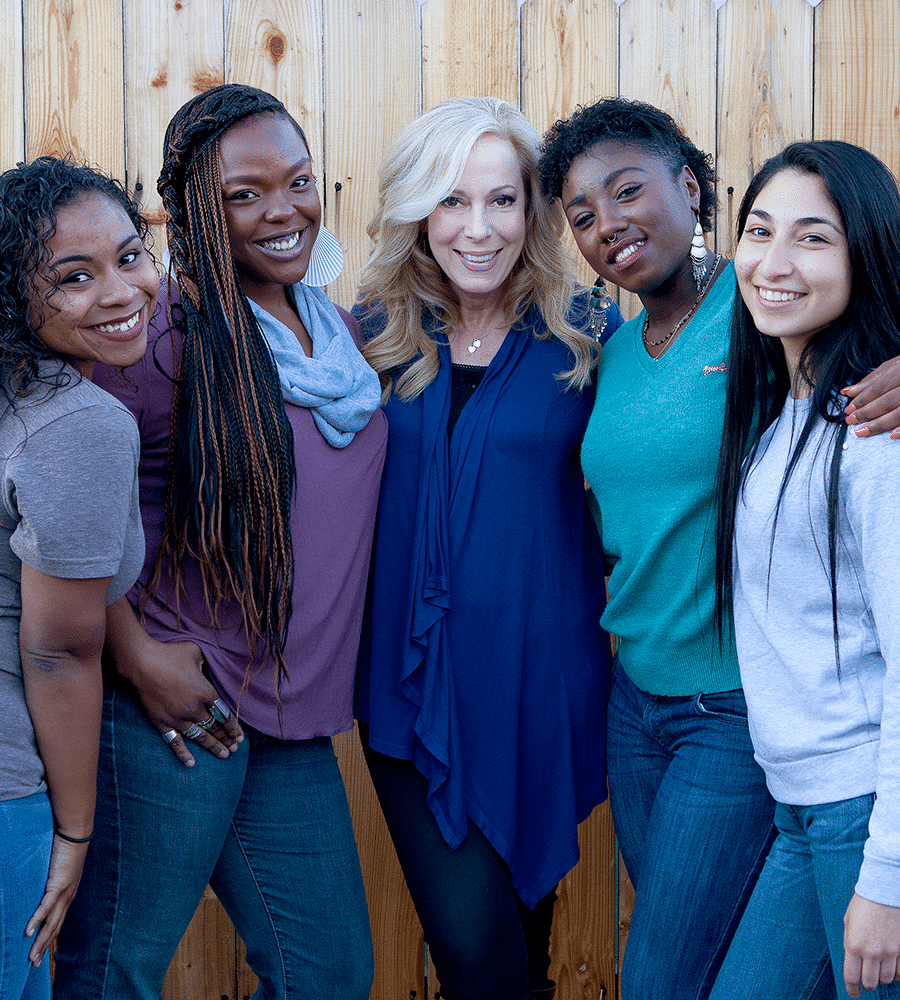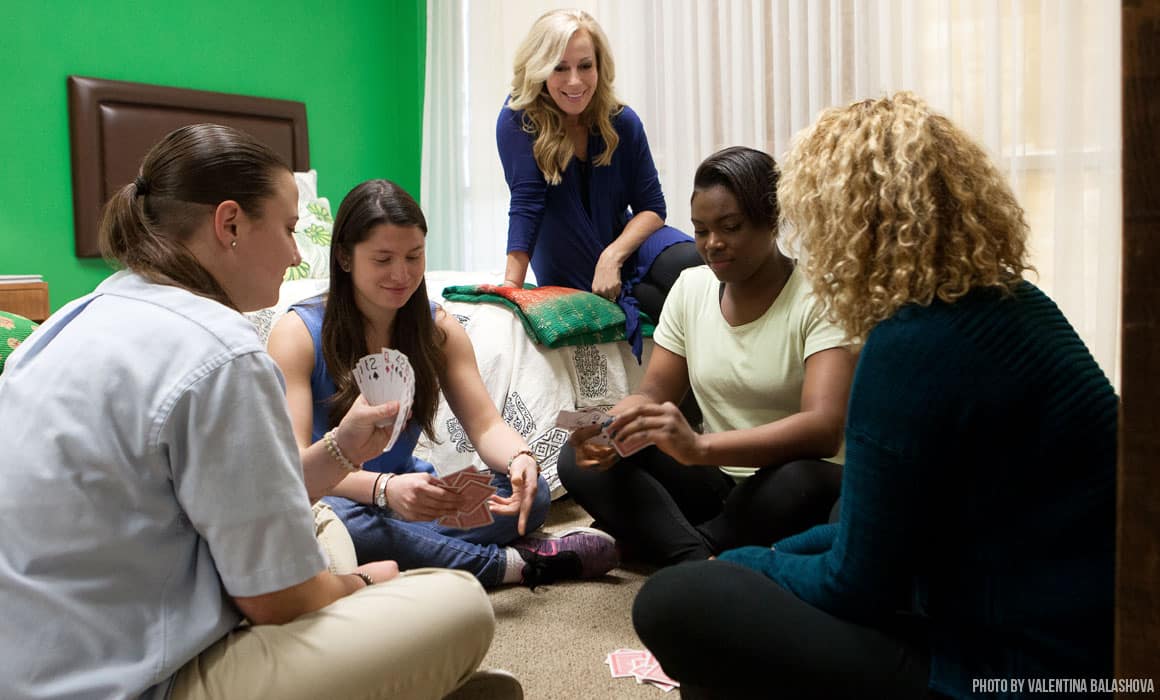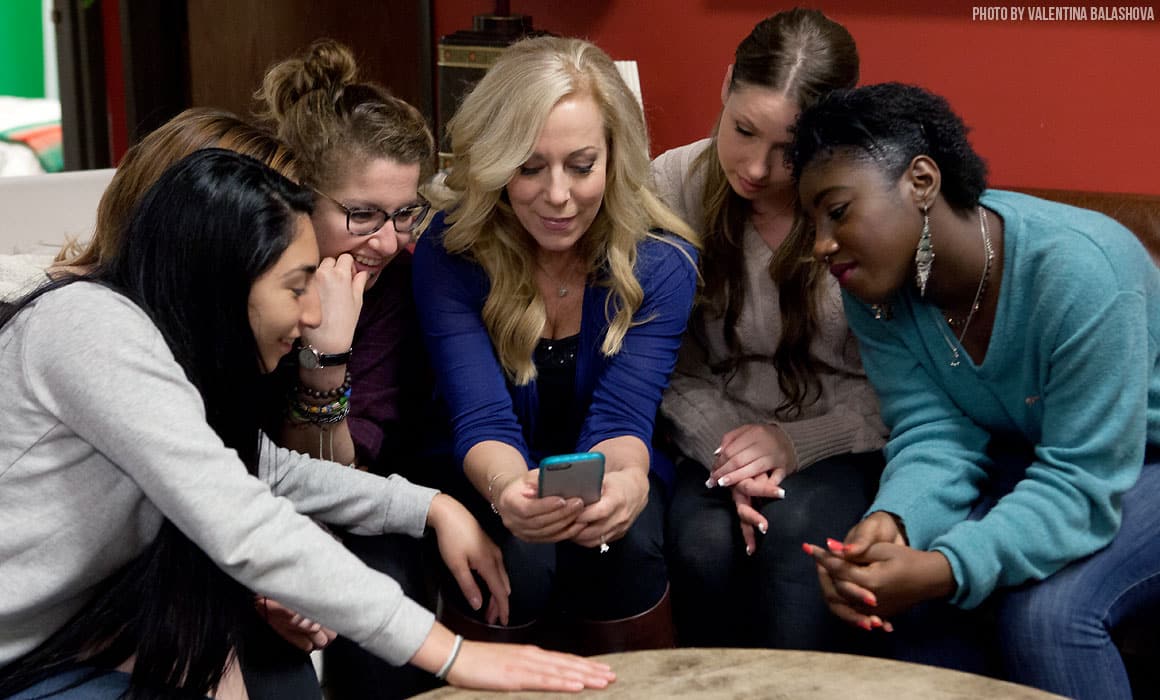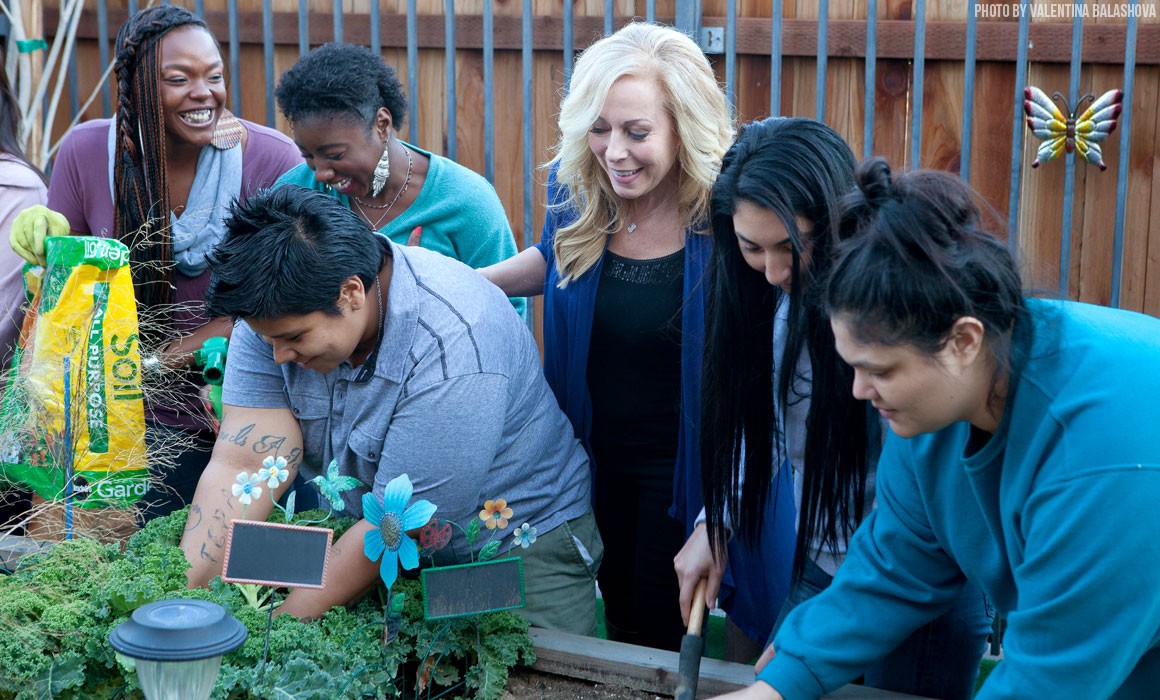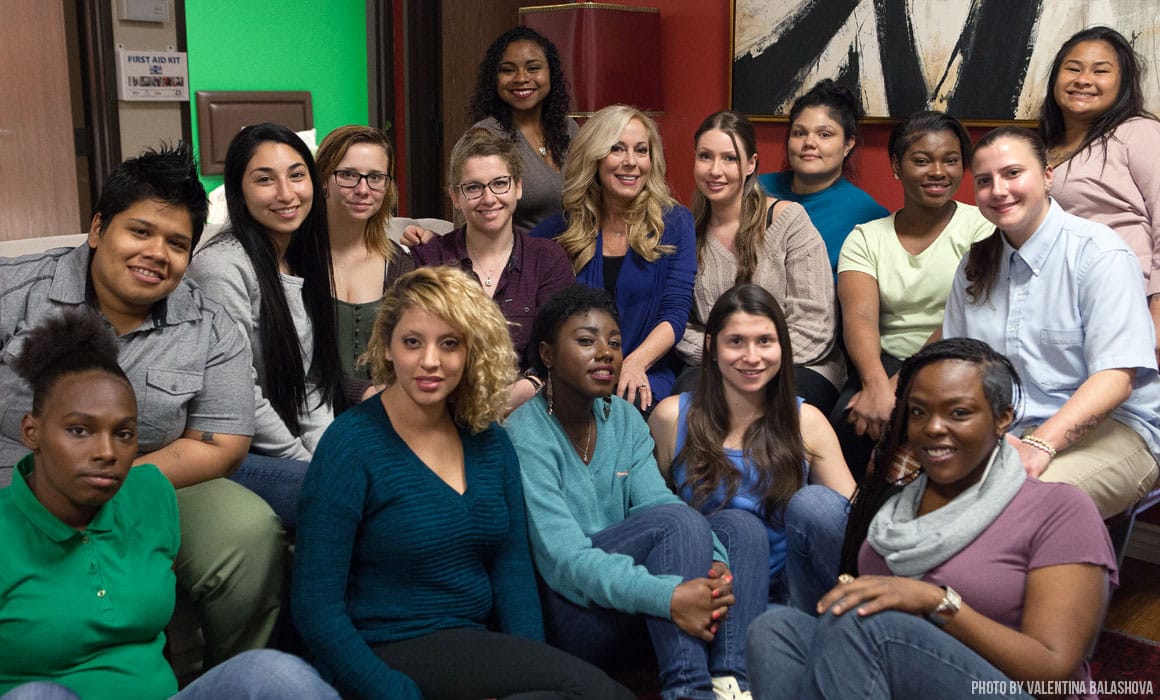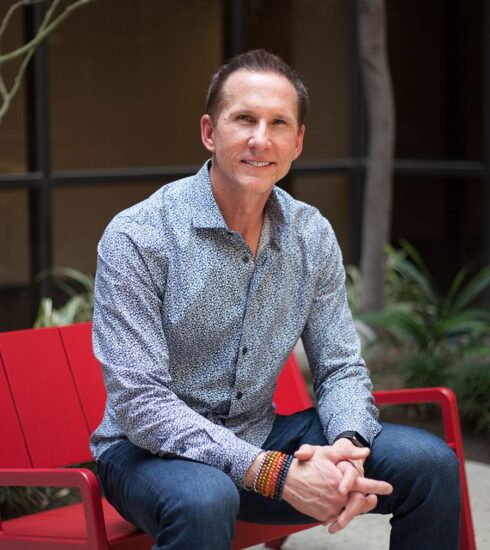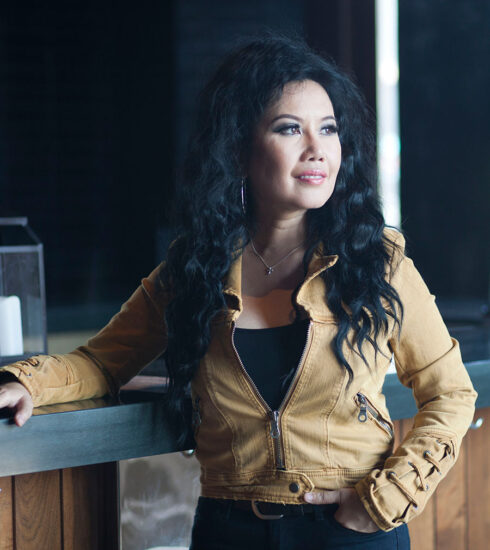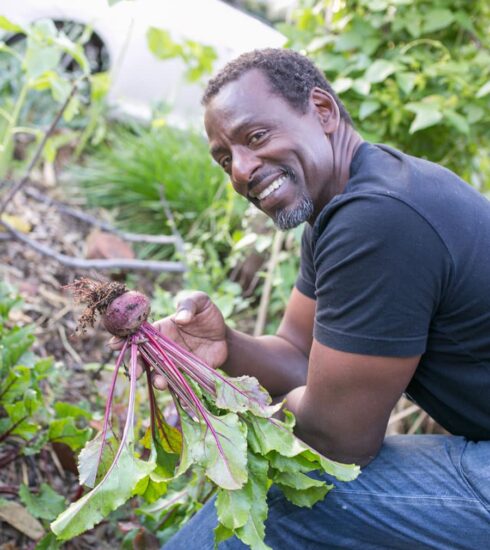Lauri Burns Saves Post-Foster Age Kids with The Teen Project
Every year 25,000 teenagers “age out” of the foster care system in the United States. Whether by choice or kicked out mercilessly, these 18-year-olds are pushed into their adult lives penniless, and often, with no one to call. As a result, 50 percent become homeless within their first year.
But one woman is stepping up and taking matters into her own hands, ensuring these lost souls are never turned away again. Lauri Burns, founder of The Teen Project, is no stranger to the foster system. She was first placed in foster care at age 15.
Now almost 50, she understands what it was like to start adulthood with nothing but tricks to turn. Today, she is a successful executive who left her high paying corporate role to pursue one mission: get these kids off the street and on a path to becoming productive members of society.
MiLLENNiAL caught up with Lauri at her Freehab center in Sun Valley, Calif. where 50 girls between the ages of 18-30 have taken refuge from a life of abuse. It is here that over 400 girls in two years have gotten clean and put their lives back on track. Without Lauri’s unwavering support and devotion to their cause, these beautiful faces would be added to the countless bodies aimlessly wandering the streets.
The Road Less Traveled
Originally from the East Coast, Lauri grew up in a middle class Jewish family on Long Island, NY. From the outside it would appear her family was normal, but inside, it was nothing but troubled. Lauri’s father was an abusive alcoholic and her mother had moved to California. At 13, a family friend witnessed her father’s abuse and reported him to the authorities.
“Before you knew it, I was working the streets as a prostitute to survive.”
Guilt-ridden, her father hid his handgun in Lauri’s room and claimed she had attempted to kill him. Unable to defend herself, she was taken to a mental institution for the criminally insane and tied to a bed in a straight jacket. A year later, her mother moved her to Southern California, but by that point, the “mental damage was too much to reconcile,” she admits.
It was a year before her own mother placed her in foster care. Like most who exit the system, Lauri became homeless, addicted to drugs, and pregnant by 19. “Before you knew it, I was working the streets as a prostitute to survive,” she tells us.
Then came the night that would change her life forever. At 23, Lauri was abducted by gang members and taken into the woods to be raped and beaten. The assailants left her lifeless body for dead. She would have died that night had a man driving on the highway not seen her.
Referring to him as her “angel,” he took her to the hospital where she woke up and realized it was time to get help. She checked herself into rehab and has been sober ever since.
Becoming a Foster Supermom
Within a year of being clean and in vocation training, Lauri was hosting community meetings for her peers. “When I was 24, I started this thing at my house for women and children who needed help, because someone had helped me.”
One night, a mother had attended and told Lauri she was addicted to drugs and didn’t know how to get help. “I told her I’d watch her daughter for a month if she went and got help. She dropped off her daughter the next day and she didn’t come back, and then she died.”
Thinking she could become the girl’s foster parent, Lauri called Foster Care to inquire about her option. “They looked at my record and said absolutely not, you need to wait seven years and for now you need to bring her to us so we can place her in a foster home.”
Knowing how bad the system was, Lauri was determined to keep the girl. She decided to call a friend in legal, who suggested becoming a legal guardian. That’s all it took. Lauri filed the paperwork and was later approved by a judge.
Since taking in her first “pseudo” daughter, Lauri has welcomed a total of 36 girls into her home. Now she has expanded her passion into a powerful charity aimed at giving resources to those who are forced to start life alone.
The Teen Project
It was 2007 when Lauri learned about the staggering number of post-foster care kids who become homeless each year. She and her friend Linda teamed up to create a non-profit that would work to solve this issue.
While The Teen Project began to take shape that year, it wasn’t until 2008 that a fateful grant for $125,000 would get them off the ground. Today, The Teen Project operates on a $2 million budget, used to support a 75-bed “free-hab” center for girls 18-30 living in Los Angeles, a 10-bed drop-in center for homeless youth to find permanent housing options in Venice, and a 6-bed sober living house for girls in Orange County.
MiLLENNiAL had the opportunity to visit The Teen Project’s Free-hab House where we saw first-hand how the program worked, and met some of the incredible women going through it.
The only free rehab center currently in the United States, this program is designed for girls who suffer from drug addiction, alcohol addiction, homelessness, or sex trafficking. A minimum 30 days is required, but girls can choose to stay up to two years if necessary.
Girls like Stefani Almarez, 23, are grateful for this program. Almarex had been addicted to smoking meth and steeling cars. Her habit had gotten so bad she was scared for her life. She tells MiLLENNiAL she had just stolen a car (which she would often sell for an eight ball of meth), when she prayed to God and told him to find her. “That’s when the sirens went off and the police picked me up,” she says. “I’ve been here 60 days…this is the first time I’ve wanted to try to be clean.”
Other girls like Airion Kelly had just celebrated a year. “It’s been a struggle, but I’d rather struggle trying to stay clean than struggle trying to get high. It’s been an amazing journey and I’m just ready to keep going on,” she says proudly.
Days are structured to teach the women life skills and help them develop sustainable careers while maintaining a sober life.
A typical day includes:
- 6am- Wake up.
- 7am- Breakfast
- 7:30am- Classes begin on domestic violence, drug and alcohol abuse, family cycle of abuse, and parenthood among others.
- 4:30pm- Classes end.
- 5pm- Dinner is served.
- 5:30pm- Chores are done.
- 7pm- AA begins.
- 8:30pm- Social snack hour.
- 10pm- Lights out.
Lauri prides herself and The Teen Project’s mission on preparing these girls to navigate life as an adult. Her biggest goal is breaking the cycle that brought these girls here in the first place. “Lauri is an awesome person. She creates opportunities,” says Madison Eufeld, who had been in jail for 20 days prior to joining The Teen Project.
60 percent of the women in the facility already have kids in the foster system. One of the classes for these parents is on reunifying with their children and making sure they development strong and healthy relationships with their kids.
Once they graduate from the program, The Teen Project is happy to report that 90 percent of the girls stay clean and off the street. Comparatively, 50 to 90 percent of traditional rehab patients relapse in their first year.
Fixing an Inherently Broken System
With a lack of people signing up to become foster parents, social workers are often forced to place kids in unbearable living conditions due to not having any other options. Lauri recalls being told social workers have to approve people who apply otherwise kids wouldn’t have anywhere to go.
But the biggest problem with these people applying is that “they don’t work.” Lauri explains, “They are suppose to have full time jobs and are suppose to prove that they are self sustaining, but most of the foster parents I know don’t work. So when the kid’s money stops, they let them go.”
Out of all the foster parents she knows, Lauri says there is only one family that wouldn’t kick their kid out at 18. Even with new laws put in place to extend the option of staying in the system until 21, most kids are “treated so badly that they ask to leave, not understanding that they are going to be homeless.”
Lauri has a few suggestions on how to fix the system. For one, she says the system needs to “be audited” by a third party source. The agency currently deploys their own auditors to run internal reviews. Secondly, “pay for drug treatment.” Too many of these kids are addicted and perpetuate the cycle once they hit the streets.
Third, she insists on a mandatory age extension to 21 before the kids are released, stating that 60 percent of trafficked kids come from the foster system. Fourth, any runaway foster child should be allowed on the missing person’s lists. The system does not currently allow for any reported missing children. And lastly, foster kids should know about vocational options post high school. Lauri informs us that most foster kids don’t even know about college.
Creating a Contagious Mission
With such a successful and effective model in place to rehabilitate and nurture these abused kids, Lauri is hoping to create a nationwide movement and train heroic community leaders who are willing to accept the challenge.
“I would like to host conferences four times per year and webinars throughout the year so we can teach [these leaders] how to look for grants, how to word their applications, and what kind of funders to look for,” she tells us.
Her intention is to provide hands on training at these conferences while allowing for practical applications to be taught online. She insists that it is just as important to “train the people at the agencies on how to take care of these kids” as well.
“Foster kids are not like pit bulls.”
To those who want to help or get involved on a smaller scale, Lauri suggests taking a chance on a kid. “Foster kids are not like pit bulls,” she says. These young adults need love and support. They need friends they can trust, and mentors to teach them life skills.
The Teen Project relies on the hearts of donors. It takes a lot to maintain these facilities and ensure these girls are kept off the street. To learn more about Lauri Burns or to find the best way to get involved through time or money, please visit TheTeenProject.com.
NOTE: If you are in the Los Angeles area, we encourage you to join us for Heart to Heart, The Teen Project’s special evening gala to raise money and awareness for LA’s homeless and trafficked youth.




